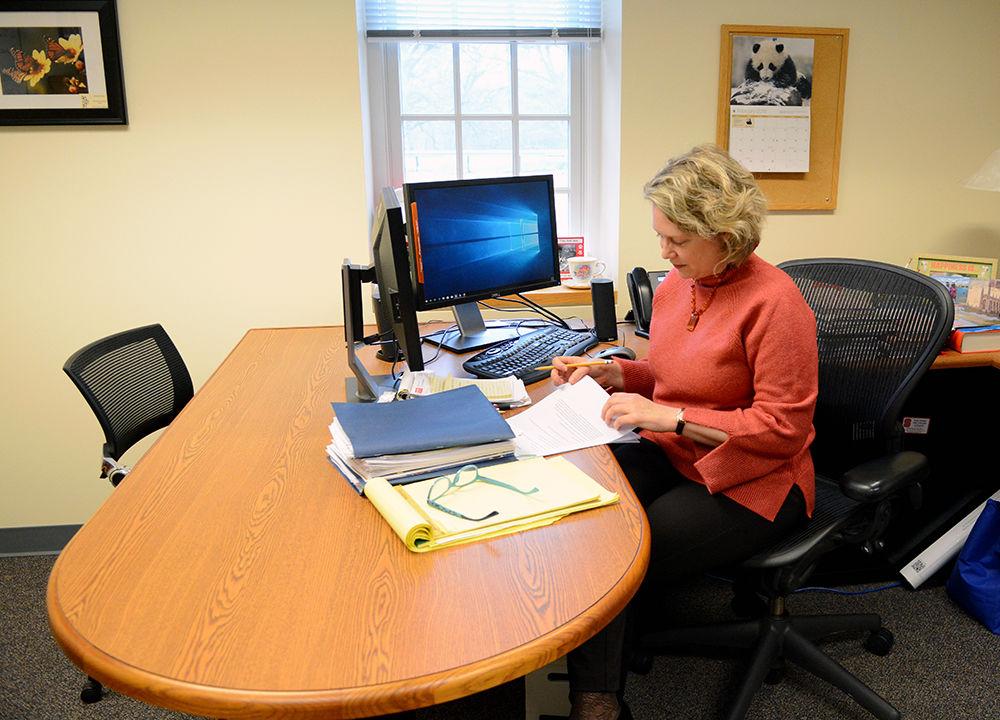On the second floor of Clark Hall, the Fellowship Advising Office serves as a resource for students and alumni to find awards that will propel them into their desired future.
Whether it is sharing information about award opportunities, reviewing applications and essays or providing endorsements for national awards, the FAO seeks to know students and their individual goals and interests to identify opportunities that suit them.
“We are award matchmakers and serve in a mentorship role,” said Alsace Gallop, an adviser and recruiter in the FAO. “It is important that candidates are understanding where they would like to go as far as personal, professional and academic goals and maybe what they would like to explore. We are here to help act as a sounding board for students and alums to dream big about what it is they would like to do. We then try to find awards that will help them down that path.”
The FAO began serving the NC State community in 2011 with Tiffany Kershner as the director. Continuing to serve in that role, Kershner explains that the FAO is multifaceted and there for student success.
“There are multiple goals,” Kershner said. “We work with students and their applications for those nationally competitive awards, which are used to do extraordinary things. We help them throughout the process of the application with critiquing their essays, prepping them for interviews and going over their cover letters. There are multiple points. It’s not a simple statement or response explaining what we do.”
Whether someone is an undergraduate or graduate student or an alumnus of NC State, the FAO pairs students to awards, such as the Churchill Scholarship or Boren Awards, to provide academic and financial help for opportunities in study abroad, research, nonprofit or on-campus enrichment.
“One of the aspects of success is getting candidates to pursue these opportunities,” Gallop said. “Another level is when a student is endorsed to represent the University in the award process. The next step is when an applicant reaches the state of being a semi-finalist or a finalist. We are, of course, ecstatic if they receive the award, but we are very excited at each stage of that process because that represents with some type of growth for that candidate.”
Besides serving as the institutional endorsers for about 12 awards on behalf of NC State, the FAO, comprised of Kershner and Gallop, can also be a place to receive encouragement and individual guidance while filling out applications.
“We are a sounding board and give feedback that maybe the students aren’t used to hearing,” Gallop said. “We do cheer for them because we love what we do and that is just natural response. We are trying to introduce, as a part of the application process, that these awards want to know a lot about you as an individual.”
Kershner echos her fellow advisor by adding that students may not have any previous knowledge or understanding of fellowships or national awards, but they can come to the FAO to learn about those opportunities and what that would mean for them as an individual.
“Students don’t need to know anything about these awards,” Kershner said. “They can just come as they are from work or class, and we can have a conversation. We are interested in getting to know who they are and what makes them unique.”
The FAO looks to aid and support students and alums no matter their background or story because there are opportunities in the forms of scholarships, fellowships, internships and study abroad opportunities for anyone who considers them.
“I am very passionate about making sure that people see us as a campus resource the same way they go the gym or the dining halls,” Gallop said. “We are available to them, and they don’t have to meet some preconceived cutoff. We are for students and alums even if they don’t know if they want to apply for an award or if they just want to know what these scholarships and fellowships are for. These opportunities are available to them and each award is different.”
Gallop and Kershner also encouraged students to not only interact with their office for support, but to also touch base and talk with their professors.
“I want to emphasize that students should not only talk to us, but to engage with their professors and to talk to them early and often,” Gallop said. “It is important that students get as much mentorship as they can. There is so many faculty and staff on campus who are interested in helping students succeed. Having conversations or hearing tips about graduate schools or internships will really help.”
Students can gain valuable personal insight from the work that they do with the FAO.
“Success for me is when a student comes back to my office and says ‘I know exactly what I want to do now,’” Kershner said. “It doesn’t matter if they were awarded a particular scholarship. For me, that is a great measure of success for what we do in our office.”
The FAO encourages students to set up a time for a meeting on their website.








